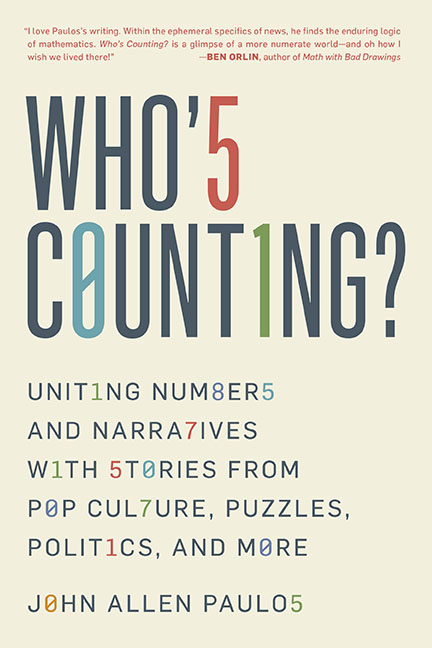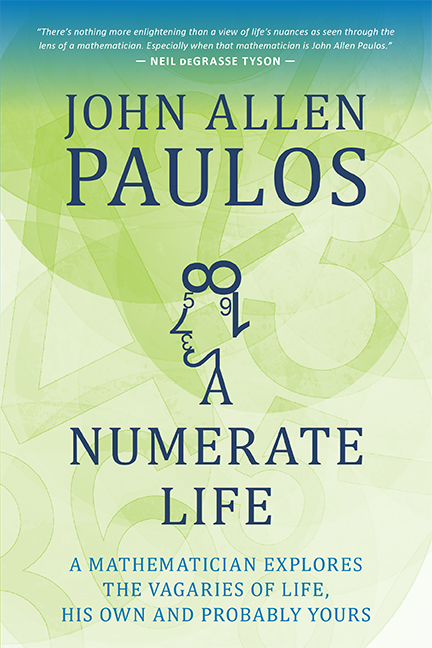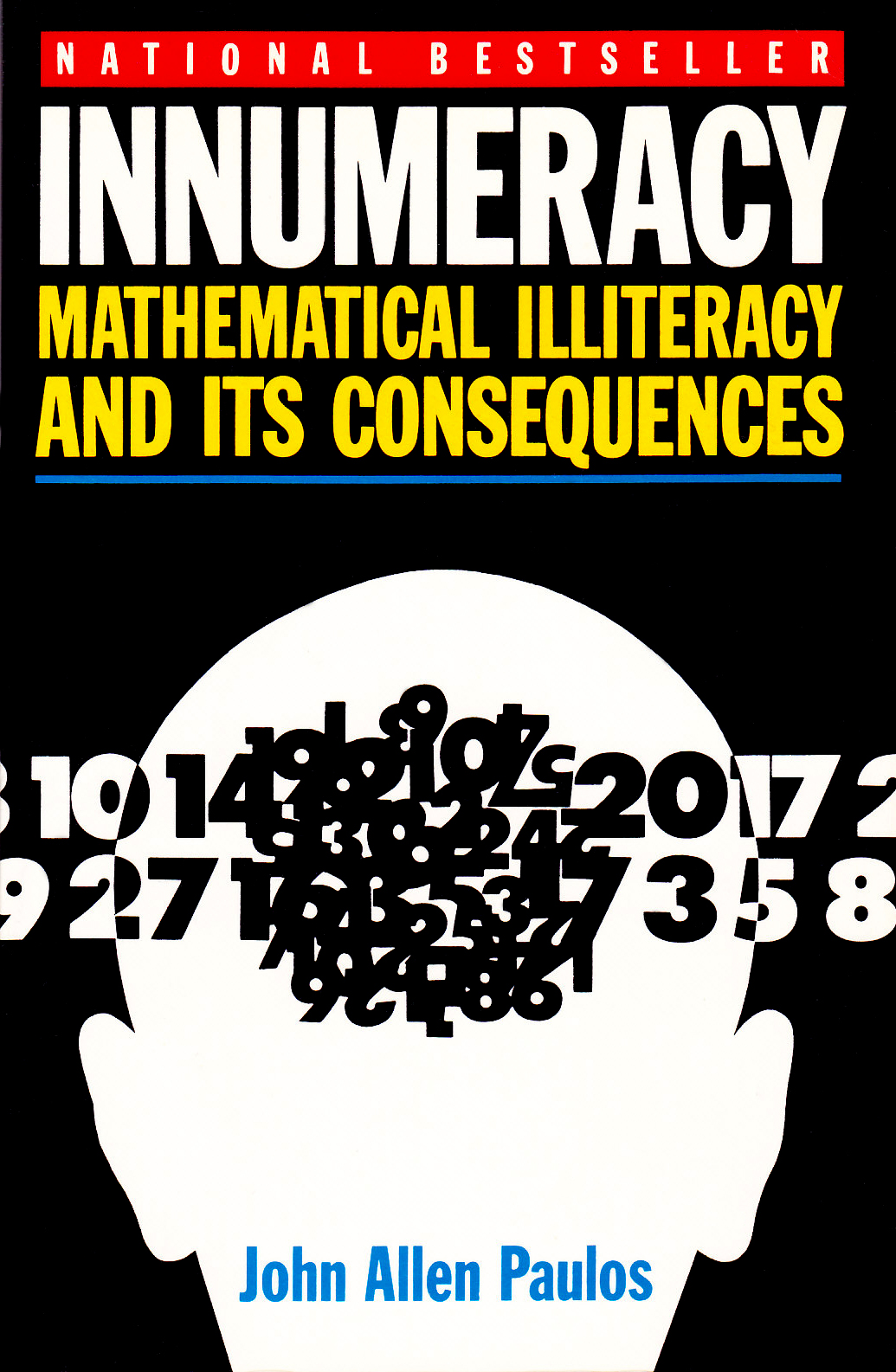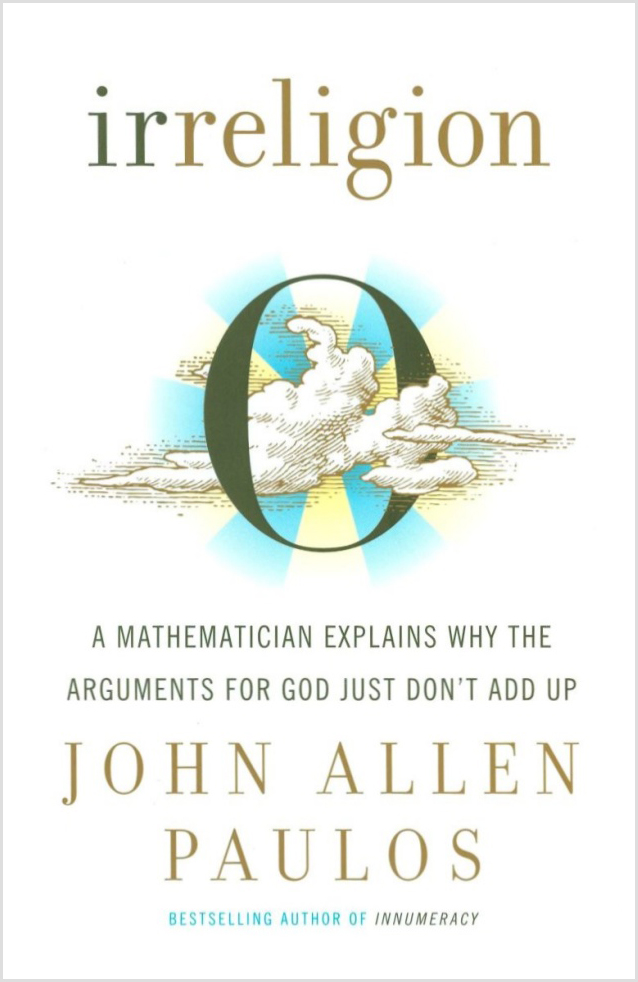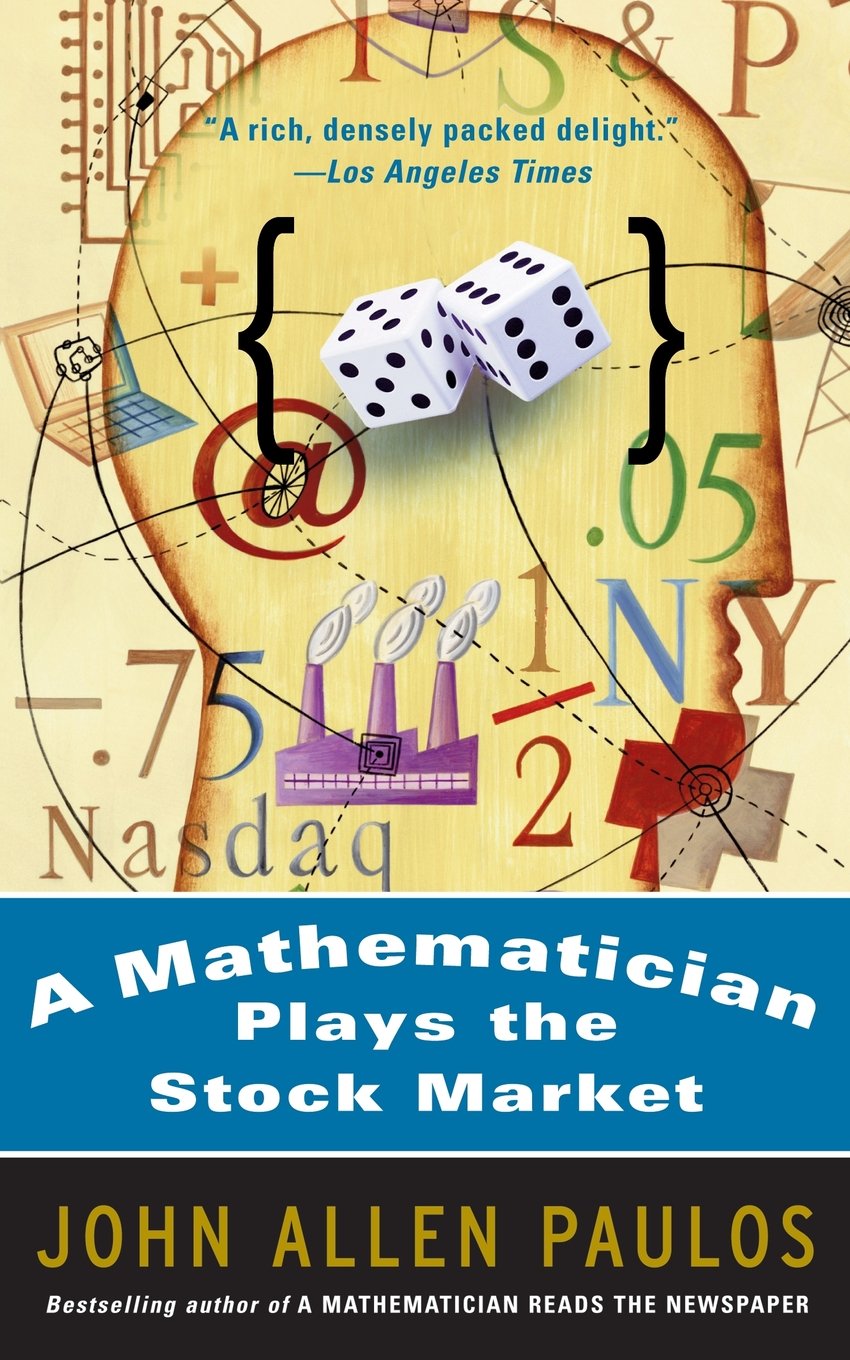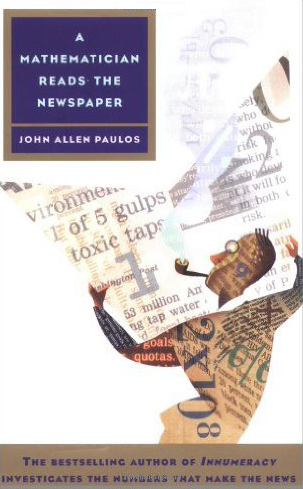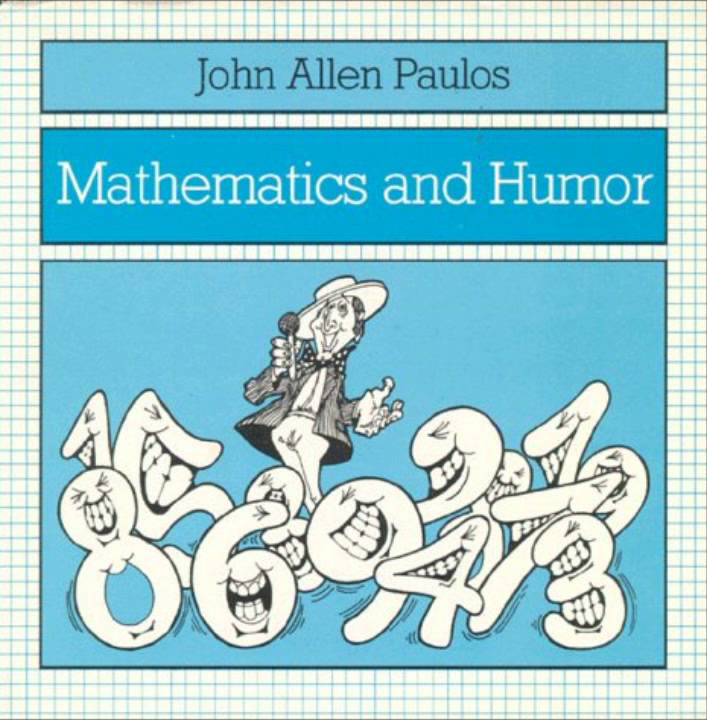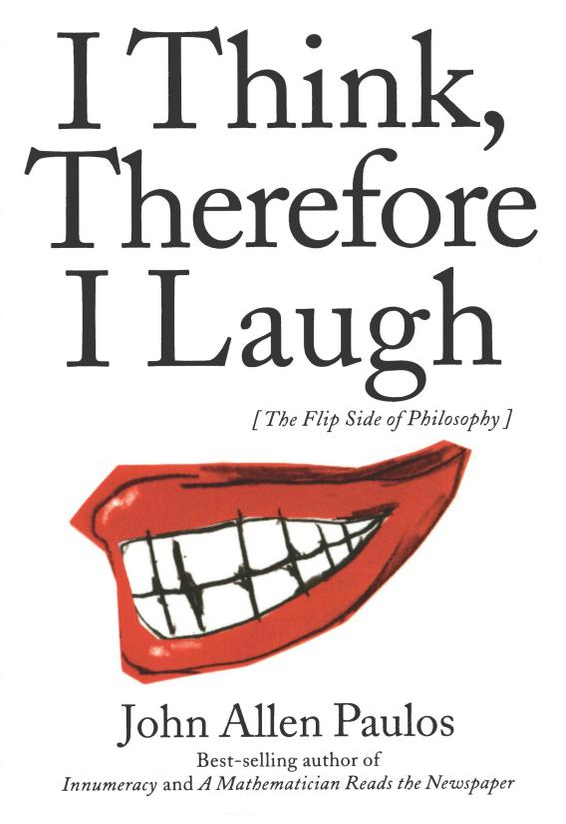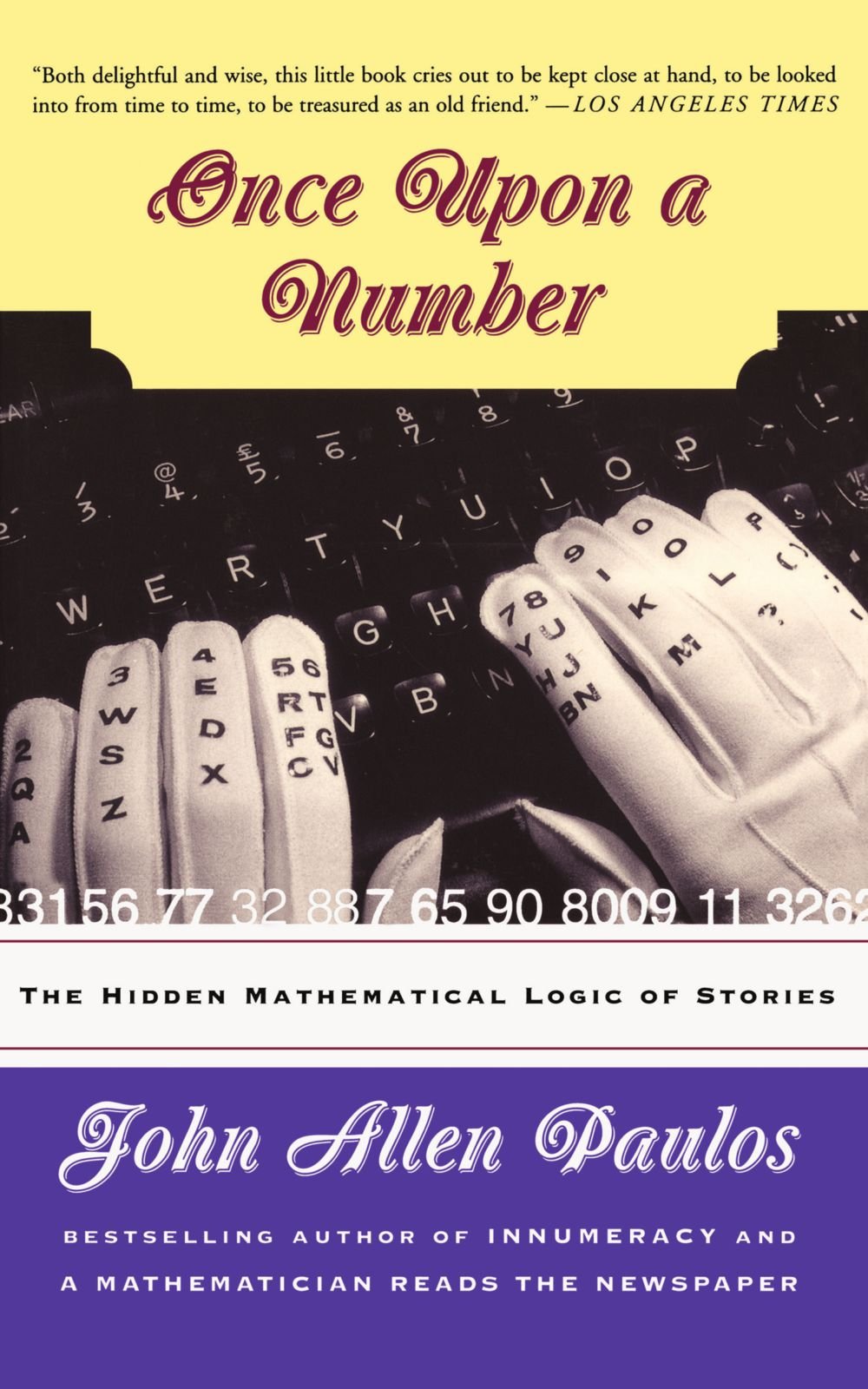
Once Upon a Number
- Basic Books, 1998
- Chosen one of the best nonfiction books of 1998 by The Los Angeles Times
- Spanish, Chinese, German, Dutch, and UK Penguin editions, 1999
Like at least 62.212% of us, I've sometimes felt torn between stories and statistics and their very different logics and mindsets. I've always been struck, for example, by how frequently people feel that they've been wronged or aggrieved and how infrequently they feel that they've wronged or aggrieved someone else. How could we all be so Lake Wobegone above average? This and other such observations led me to thinking not only about the differences between stories and statistics but also about those between subjective viewpoint and objective probability, between informal discourse and logic, between meaning and information. The book that resulted, this book, is a sort of mathematician's take on C.P. Snow's two cultures, the literary and the scientific, and is my attempt to bridge, or at least illuminate, the gap between them. The stress is on examples, vignettes, parables, stories, puzzles, and a few memoiristic segments. Topics include the Bible codes, the statistics of racism and stereotyping, twenty questions and "magical realism," the probability of Murphy's Law, the role of common knowledge in the stock market, information theory and literary criticism, and much more.
Reviews
"John Allen Paulos is one of the greatest mathematical storytellers of all time, one of those rare individuals who can so beautifully use the medium of story to communicate math and statistics. In this pathbreaking and immensely entertaining work, he also does the reverse: he uses the medium of math (and statistics) to tell us about the medium of story. Each of his insights and one-liners is great and together they offer a profound, new view of the relation between math and stories."
"Around the relations between formal mathematics and informal narrative, Paulos has woven a rich tapestry of jokes, paradoxes, logic, probability, statistics, semantics, philosophy and other wonders. One never knows what delightful surprise is coming next. You will learn a lot from this entertaining yet far from superficial book."
"A stimulating discussion of the benefits and pitfalls of applying mathematical reasoning to stories and everyday life."
"Paulos' goal is nothing less than lofty. He hopes to reconcile the personal aspect of human life, which refers to the stories we tell and live by, and the impersonal, which is essentially mathematical, statistical and scientific. Literature and science, he says, share an uneasy complementarity, a complementarity Paulos explores in this collection of linked essays. ... Both delightful and wise, this little book cries out to be kept close at hand, to be looked into from time to time, to be treasured as an old friend."
"The idea that the mathematician is essentially concerned with the same questions as the novelist -- and for that matter, the secretary and the accountant -- is intriguing and strangely comforting. That Paulos pulls it off without veering too far into the technical -- or careening into the patronizing -- is a testament to the success of his book."
